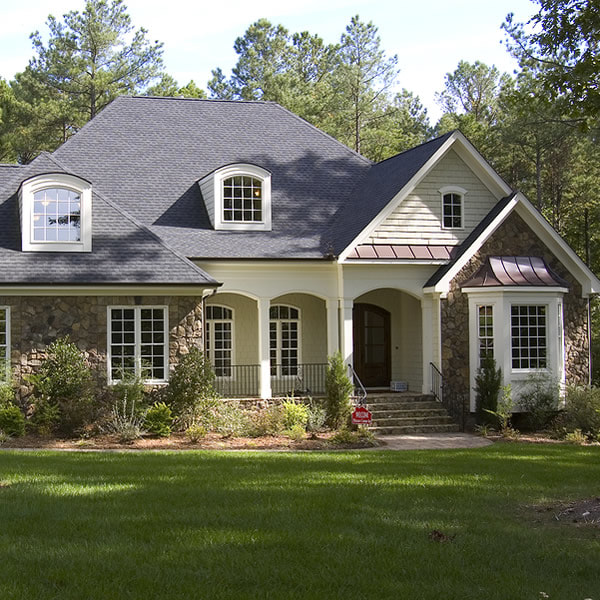At Home With Lisa-What Is The Real Estate Cycle?

Have you ever heard the phrase "real estate cycle"? Or "housing market cycle? This is what I will be talking about. May be a little lenghthy but I'm hoping it will help to clear some things up. One question I am often asked, "Is this a good time to buy?" Well, let's see.....
Real estate follows a pattern called the real estate cycle that is linked to local and national economic trends. The real estate cycle is divided into four phases: recovery, expansion, hyper supply and recession.
Whether you’re looking to purchase your first home or an investment property, understanding the real estate cycle and knowing where we are in the economy can help you predict upcoming trends and make better decisions about your investment. So let's take a look at how the real estate cycle affects the housing market, and what that means for you.
What Is The Real Estate Cycle?
The real estate cycle, sometimes called the housing market cycle, is a model that represents economic changes within commercial and residential real estate industries. The cycle is made up of four parts: recovery, expansion, hyper supply and recession.
The real estate cycle refers to the fluctuations in economic activity, defined by periods of expansion and contraction.
Expansions are phases when the economy is growing. Typically, during an expansion period business grows, unemployment is low and consumers are spending money. The period leading up to the 2008 recession is an example of an expansion. From 2001 to 2007 the American economy experienced steady growth in business and low unemployment, resulting in the economy expanding.
When economic growth begins to stall, economists refer to this as the peak of a real estate cycle. This is when the economy has reached its highest growth potential. The peak of an economy occurs after a time of expansion and before it begins to contract.
An economic contraction is when the economy begins to shrink. During economic contraction, many businesses reduce their production because consumers are spending less money. The reduction in production can lead to layoffs and contribute to increased unemployment.
Depending on the severity of the contraction, economists will refer to this phase as a recession or depression.
Real Estate Cycles And The Economy
The Federal Reserve oversees and sets interest rates based on the performance of the economy. When the economy is running well, interest rates tend to be higher. There are more people buying and investing and most consumers don’t need an incentive to continue spending.
When the economy is performing poorly, interest rates are lowered to encourage spending. When experiencing economic contraction, consumers are more conservative with their spending. By lowering interest rates, consumers have an incentive to purchase more, even if unemployment is up and the productions of goods is down. The lower interest rates give home buyers an incentive to purchase and homeowners an incentive to refinance.
How Long Is The Real Estate Cycle?
You’ve probably seen headlines like “We’re heading toward a recession” or “We can only go up from here.” While they may see a trend developing, economists cannot predict the future. They have an idea of where the economy may be heading, but as history has shown us, they don’t know for sure.
Real estate cycles are unpredictable, and some phases can last longer than others depending on local, national and global economic influence.
How The Real Estate Cycle Impacts Home Buyers
When the economy is in an expansion phase, home values tend to increase and unemployment rates are low. With more Americans working and earning an income, more people can afford to purchase a home. When the economy is contracting, employment can be become a concern so many consumers choose to spend less and save more for a rainy day.
If you’re planning to purchase a home in 2022, real estate is still in high demand, making it a seller’s market. A combination of low inventory and labor shortages are driving up demand and home values. Unfortunately for millennials entering the real estate market as first-time home buyers, this puts them at a disadvantage. Factors like high home prices, labor shortages and building material shortages are boxing them out of the market.
Getting a house is still possible, but you might want to make a list of what you absolutely need and what would just be nice to have so you can find something in line with your budget.
Buy Or Sell Your Home On Your Own Time
So, after my long winded explanation, what I'm trying to convey is this: No one can predict the future, but if we pay close attention, we can see patterns that give us an idea of what’s on the horizon. We know that when demand for housing is high, the competition gets fierce and home values increase. When interest rates increase and the economy stalls, home values stabilize. What we don’t know is how long these phases will last.
When it comes to buying or selling a home, doing so on your terms and timing is important. The real estate cycle gives us insight into where the economy is and where it’s headed but only you can determine when you’re ready for the responsibility of your own home.
I'm Lisa Longest with Realty Navigator. I am a full time Realtor® GRI® RENE® CDPE® and PSA® in Anne Arundel and Queen Anne Counties. I am here for all your real estate needs. If you are looking to buy, sell or question me about the market in your area, feel free to contact me. I am located in Annapolis and Kent Island. My email is LisaLongest.RE@Gmail.com and cell is 443-786-4200.





